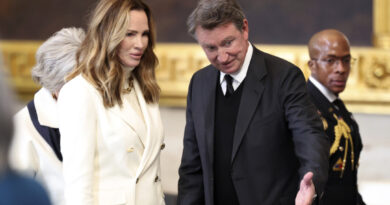Government source says Tesla requested reduced tariff on China-made EVs from Canada
OTTAWA—Prior to Canada’s announcement of a 100 percent duty on Chinese-made electric vehicles, Tesla had approached Ottawa to request a lower tariff on its vehicles, according to a source within the Canadian government on Wednesday.
Following the United States’ lead, Canada declared on Monday that it would impose the tariff on all Chinese-made vehicles entering the country due to what it deemed China’s deliberate, state-directed policy of excessive capacity.
Effective October 1, the duties will be applied to all electric vehicles shipped from China, including those manufactured by Tesla. Ottawa had signaled its intention to implement these duties back in June.
The source, who preferred to remain anonymous due to the sensitivity of the matter, revealed that Tesla had reached out to Canada prior to the official announcement. The automaker had requested a rate comparable to what it had received in the European Union.
Although Tesla does not disclose its Chinese exports to Canada, vehicle identification codes indicated that both the Model 3 compact sedan and Model Y crossover models were being shipped from Shanghai to Canada.
In contrast to the European Union, which imposed a 9 percent tariff on Tesla vehicles manufactured in China, the United States and Canada considered other factors like subsidies, industrial overcapacity, non-market policies, environmental, and labor standards when determining the tariff, the source explained.
Tesla has not been in contact with Ottawa since the tariff announcement on Monday, the source added.
For inquiries, Tesla was not immediately reachable at the time.
The office of Canada’s Finance Minister, Chrystia Freeland, who oversees tariffs, declined to comment on discussions with Tesla.
Canadian car imports from China into its main port in Vancouver surged by 460 percent year over year to 44,356 in 2023 when Tesla commenced shipping EVs made in Shanghai to Canada.
Back in May, U.S. President Joe Biden had revealed plans to increase tariffs on Chinese electric vehicles to 100 percent, raise duties on semiconductors and solar cells to 50 percent, and introduce new 25 percent tariffs on lithium-ion batteries and other strategic goods. According to a company letter in July 2023 to the U.S. Environmental Protection Agency, Tesla had never shipped China-made models to the U.S. market.
The implementation of U.S. tariffs has been postponed until September, and there’s a chance that the planned tariffs may be revised this week.
Volvo Cars expressed concerns regarding the heightened tariffs in Canada and their potential impact. The Swedish automaker mentioned importing EX30, XC60, and a few S90s models from China to Canada without specifying exact figures.
Similarly, Swedish EV manufacturer Polestar, with partial ownership by Volvo Cars and China’s Geely, ships the Polestar 2 from China to Canada and is assessing the impact of the Canadian tariffs.





